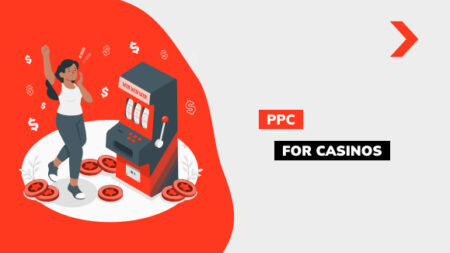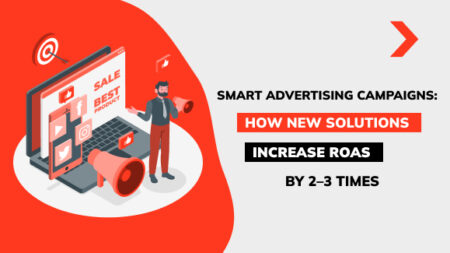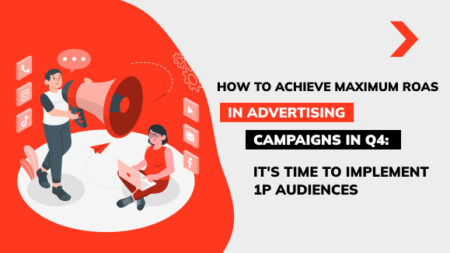PPC Analysis Strategies
Running a campaign could be an effective method to increase visitors to the website and produce purchases. With increased competition and expenses in paid search, ensuring you receive the most returns and persuading the customer is more critical than ever.

Mastering PPC analysis is critical for maximizing an operation’s profits. Hence, in this guide, you’ll learn about the structured method, analysis software, and best practices.
What Is PPC Analysis?
It’s a vital process for analyzing the efficiency of PPC campaigns to adjust them for improved results; the process extends beyond simply tracking clicks and impressions. PPC analytics delves into grasping how those clicks convert into significant actions.
This analysis uses various measures, including click-through rates (CTR), cost per conversion, quality score, and others, to provide an overview of campaign execution. Marketers use these analytics to discover patterns, define areas for upgrades, and make data-driven decisions.
Overview of PPC Campaigns Analysis
The primary goal is to achieve ad spend efficiency and ensure every cent goes toward attaining a company’s marketing objectives. PPC performance analysis starts with an adequate structure that leads the entire process, ensuring it is organized and goal-oriented.
Keeping up with paid search marketing needs an anticipatory approach to campaign management. It comprises installing automated alerts for changes in important indicators and creating a regular check-in schedule to monitor the campaign’s progress during a given time.
Core Components
Before going into the data, it’s critical to establish a purpose. Access impressions and CTR are crucial KPIs for raising brand visibility. Conversion Rate and Cost per Lead (CPL) are key metrics for lead generation initiatives. Returns and cost per acquisition (CPA) are indicators for direct sales initiatives. As the goal is to engage clients, metrics like visits and time on site are displayed.
Ad Groups
These sets can impact quality score, ad relevance, efficiency of costs, and CVR. A PPC campaign has an assembly of search ads that target related keywords. An ad organization in Google Ads enables you to handle bids at the group-specific level, including CPC bids. Measures relevancy, ad quality, and landing pages. Clear ad groups boost quality scores by showing that ads and landing pages correspond to their keyword.
Keywords
This research sheds light on consumer behavior, marketing relevancy, and the overall efficiency of keywords in delivering acceptable results. Evaluate which terms are associated with the sales funnel’s awareness, consideration, and decision stages. High-funnel phrases may have a lower direct CVR but are crucial for first visibility. Bottom-funnel keywords closely related to buying intent may improve CVR and ROI.
Ads
The concept of a paid search commercial is the message you want to convey to the target audience. A solid hook entices people to look at a search ad and take action. When conducting a competitive analysis, take down a competitor’s hook. After identifying which hooks they use to get clicks, you can work on making your hooks more persuasive and authentic.
Landing Pages
Analyzing rivals’ target landing pages will help you define what messaging will resonate with the target audience. You may learn from their success by utilizing attractive headlines and dynamic calls to action; it can also help you avoid their mistakes, like confusing landing sites or poor offers. This can help you provide more effective ads and conversion-optimized landing pages.
Why Analyze Your PPC Campaigns?
Make data-driven decisions to increase your CTR, conversion rates, and overall campaign productivity. Gain insights into others’ PPC campaigns and use this information to optimize paid search marketing. You may use data to influence future paid search ads and ensure they align with corporate objectives.
Identify areas for improvement
Knowing and utilizing paid search campaign optimization is critical for businesses looking to maximize their investments. Compare paid search metrics, including quality score, CTR, CPA, and conversions, across tailored ads and ad groups to optimize bidding strategy decisions.
Optimize for better performance
Expert-level PPC advertising requires continuous keyword analysis, manual bidding, and constant A/B testing to find converting ads. In this approach, optimize the expenditure, analyze the budget allocation, and fine-tune your audience targeting to meet the project objectives.
Measure ROI
Being able to measure and prove returns is essential, particularly for marketers. You need to track ROI to know which paid search campaigns are effective and which need to be tweaked. Tracking ROI confirms the value of the ads and helps justify budgets for ongoing initiatives.
Stay ahead of competitors
With insights into the budgets of the competitors, you can optimize your advertising efforts, whether that means modifying bids to prevail on essential keywords or redirecting attention to other cost-effective options they may be overlooking.
Key Metrics to Monitor
By analyzing PPC operations, you can compare the budget invested to exact conversions and purchases.

As your paid search campaign connects with prospects, you’ll learn how they view these efforts. The relevant data is converted into metrics that may be measured using the KPIs in a performance report.
Click-Through Rate (CTR)
When operating a search ad, this indicator is one of the most crucial metrics. To calculate this value, divide the total impressions by the number of engaged people and multiply the result by 100 to get the percentage. A high CTR indicates that you appear in relevant paid search results, and an ad copy engages viewers.
Cost-Per-Click (CPC)
It reveals how much the company spends each click on the intended ad. CPC is one of many important metrics. However, by monitoring CPC, you may identify whether or not other keywords with lower CPCs will still deliver results and assist you. The indicator is calculated by dividing the total cost of your clicks by the total number of clicks.
Conversion Rate
CVR is calculated by dividing the number of conversions by the total number of visitors. This figure represents the percentage of persons who clicked on the ad. Whatever the activity, the conversion rate is vital since it indicates how successfully creatives generate leads. An optimal CVR suggests that your advertising efforts and website fulfill their objectives.
Return on Ad Spend (ROAS).
It’s a campaign performance KPI that measures the revenue generated for each dollar spent in the paid search. To calculate ROAS, track your revenue and ad spend. Split the revenue earned through the campaign by the entire cost; the resultant figure is the metric given as a ratio.
Quality Score
Generally, it’s a number used to calculate where an ad appears in a search engine and how much you’ll spend. It’s calculated by factors like expected CTR and ad relevance and expressed with numbers 1 to 10. The higher your QS, the more highly the ad will grade, and the less you’ll spend per click. A low QS penalizes you with reduced interaction and a higher CPC, which affects ROI.
Setting Up Your PPC Analysis
Considering analytically for scaling, paid search analysis has long been a respectable ability. However, with budget cuts and unpredictable cycles, analyzing campaign performance to guide future decisions is more critical than ever.
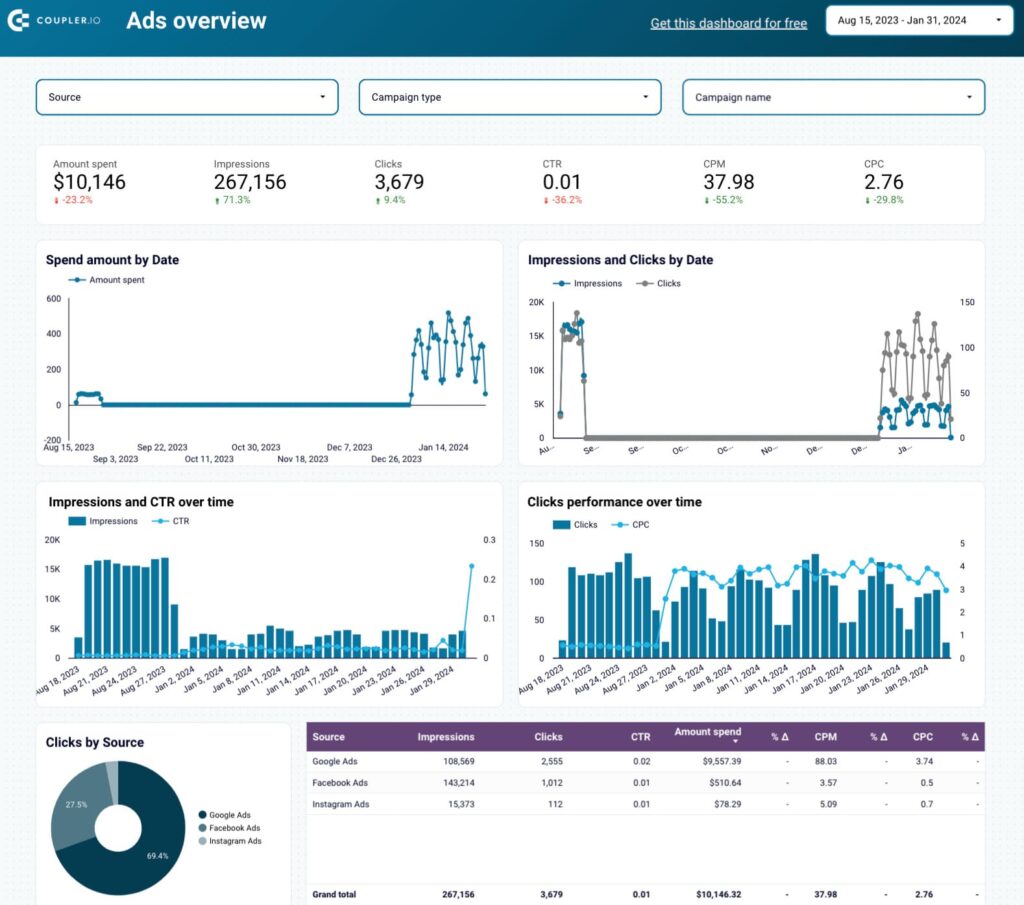
Employing PPC analysis strategies is vital since it ensures that efforts are relevant and timely to achieve corporate marketing objectives.
Choosing the Right Keywords
You should choose search terms relevant to the ongoing intent and the user experience. With competitor analysis, you can gain insights into the keywords they’re targeting and their methods.
Adopt relevant keywords into paid search creatives to ensure you’re targeting prospects who may be looking for your services. Keeping informed about the market leaders’ strategies allows you to keep one step ahead.
Defining PPC Metrics
By closely checking these data points, you’ll get insights that’ll allow you to make decisions about a Google Ads strategy. As you define the most critical KPIs, you’ll avoid repetitive optimization, manage money more effectively, and ultimately prove actual results to stakeholders.
KPIs can help organizations determine the most effective keywords and ad text and optimize landing pages for higher conversion. Furthermore, you can compare results across numerous campaigns, advertising, and social media channels.
Creating Effective PPC Reports
A report must supply you with essential details at a glance, enabling you to take action quickly. Reporting should be comprehensive, including KPIs, actionable insights, and strategic guidance in an understandable way. Reporting extends beyond figures, as words depict the paid search journey.
In the report, you should focus on critical metrics connected with objectives, guaranteeing a clear and concise presentation without going overboard with the important metrics.
Setting Up Your Analysis Framework
Effective analysis and management necessitate dependable software that leads the process. The framework will ensure that analysis can provide insights. Similar analysis tools can assist you in optimizing ads and reducing wasted spend. Native ad networks have reporting features; however, the results aren’t presented in a visually appealing way. Google Analytics is the best, even for entry-level marketers, but you’ll undoubtedly require automated and integrated PPC reports.
Define Your Goals
When unleashing the gathered data, it’s critical to determine what success looks like for the planned paid search creatives. Whether the goal is to increase leads, increase revenues, or improve brand awareness, having clearly stated objectives guides analysis.
Choose the Right Tools
Marketing software enables long-term monitoring of targeted campaigns. The correct tools lessen the burden of reviewing disparate datasets. Instead, you obtain a complete picture of your campaigns in one place. This is because one of the most critical features of analytics software is the ability to automatically collect data from all channels.
Establish a Regular Analysis Schedule
Embed daily and monthly checks into business operations. The reported campaign performance is a methodical strategy for spotting errors early, optimizing, and matching tactics with changing market conditions. You can quickly handle any ads that have been rejected or paused.
Conducting a Comprehensive Analysis
Businesses have access to many insights that allow them to accurately assess the productivity of paid search initiatives. To uncover the potential of paid search efforts, it’s critical to dissect campaign health smartly.
Campaign Analysis
Initiatives employ many channels to spread the word widely among the intended audience. Any channel demands an exclusive approach based on operating dynamics. To organize efficiency analysis, you must first recognize and manage them.
Ad Group Analysis
Once you’ve created a campaign, you should constantly evaluate each ad group. To determine whether you’ve chosen the proper ads, check the ad groups and each keyword. In this instance, tracking KPIs like CTR, conversions, impressions, and cost per click is crucial.
Keyword Analysis
Continue the research with a more comprehensive perspective. Relevant PPC keywords may appear among a company’s core offerings. Choose terms with search intent that accurately describe your products or services while respecting the branding or the partners you represent.
Landing Page Analysis
If paid search initiatives attract visitors from different countries, one of the insights you may find useful is country-specific execution. In this way, landing page data will assist you in identifying places where ads produce the most significant returns.
Creating Actionable Insights
These insights are valuable pieces of knowledge obtained through data analysis. They go beyond basic data to provide clear direction for making decisions in the company, which is supplemented by clear visualization, forecasting, and scoping.
Identify Areas for Improvement
With benchmarks, any firm can identify the areas that demand immediate adjustments. To do so, compare the outcomes to the corporate objectives, target market, and historical statistics. Both tactics help you understand your strengths, weaknesses, potential, and progress.
Prioritize Optimization Efforts
Cost-benefit analysis is a helpful tool for capitalizing on optimizing paid search initiatives. The analysis will assist you in evaluating the profitability of each activity and ranking them based on their net benefit. To do a cost-benefit analysis, you must consider each activity’s direct and indirect costs and benefits and assign monetary values to them.
Test and Iterate
It’s a method of advertising that entails constantly experimenting with new assets and techniques to increase performance. In this tactic, the test phase evaluates the current solution, while the iterate phase focuses on making changes that most optimally correspond with user experience.
Measure the Impact of Changes
The major reason you might make changes to the ads is to maximize the budget. By analyzing what parts of a campaign are most successful, you may apply what you’ve learned to future ads, increasing the efficiency of advertising over time.
PPC competitor analysis tools
Manually analyzing competition is an effort that requires time, but there are numerous practical tools available to assist you in automating this process. These tools are more than just keeping an eye on the competitors; they’re about using data to optimize your plan and stay one step ahead.
1. Semrush
The platform offers solutions for competition analysis, including keyword bidding, ad budget adjustments, messaging, and page tracking.
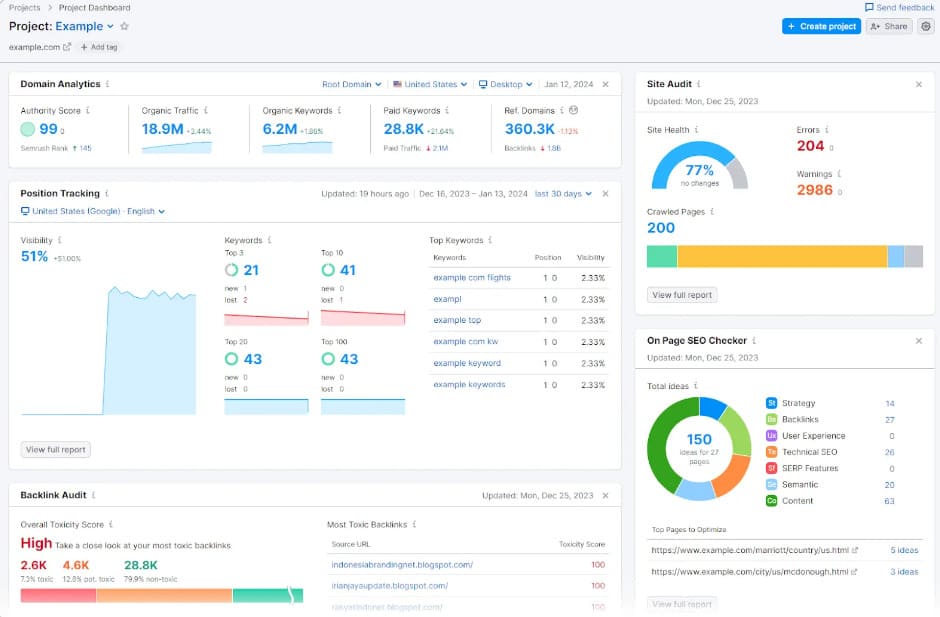
Although Semrush is suitable for PPC, its features are capitalized on SEO and content management.
2. SpyFu
This network is one of the most useful analytical tools. SpyFu offers a large dataset to work with, and the UI is simple, making accessing the data you need quick and easy.
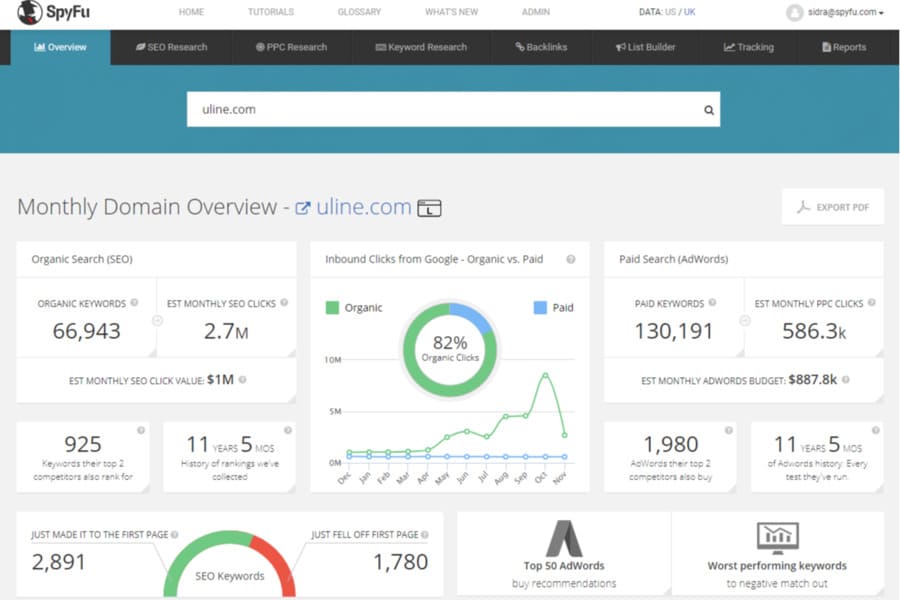
Search for any website and every place it has appeared on Google, including every keyword purchased through Google Ads, every rank, and every ad variation.
3. BrandVerity
Another tool scans dozens of search results across many regions and generates an actionable report of violations.
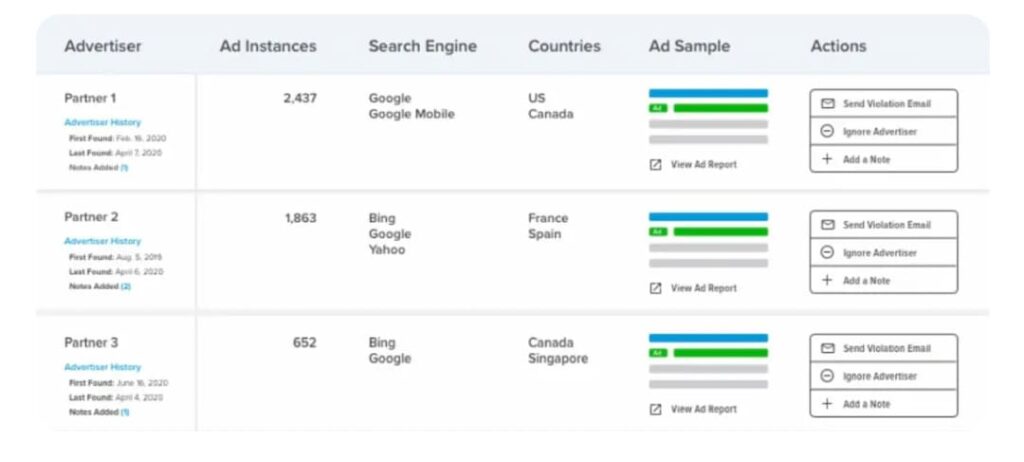
BrandVerity is a renowned brand security software system that provides two compliance solutions. It’s a solution for businesses attempting to monitor their sponsored creatives.
4. iSpionage
It’s a reasonable piece of software for online advertisers looking to keep a watch on their competition. iSpionage allows users to do analysis using a keyword or domain and choose a preferred country, offering data on competitors.
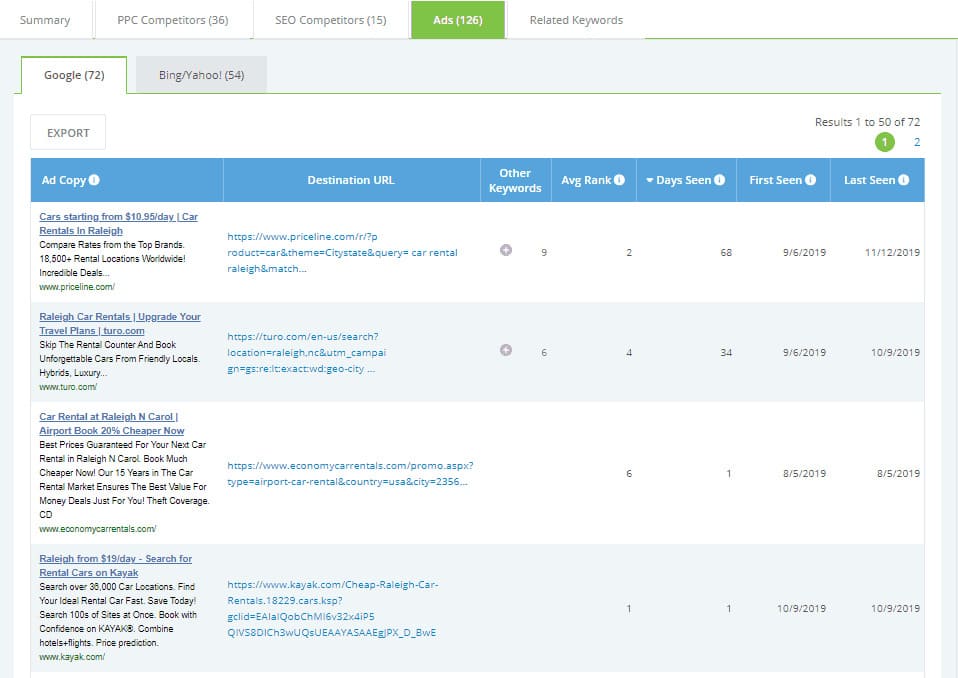
The feature analyzes the strategy in vicinities, allowing for personalized ads and localized messages.
5. Ahrefs
The final platform is mainly used to assess websites’ link profiles, rankings, and SEO health. Ahrefs can also be used for Google Ads keyword research, as it provides average CPC estimations.
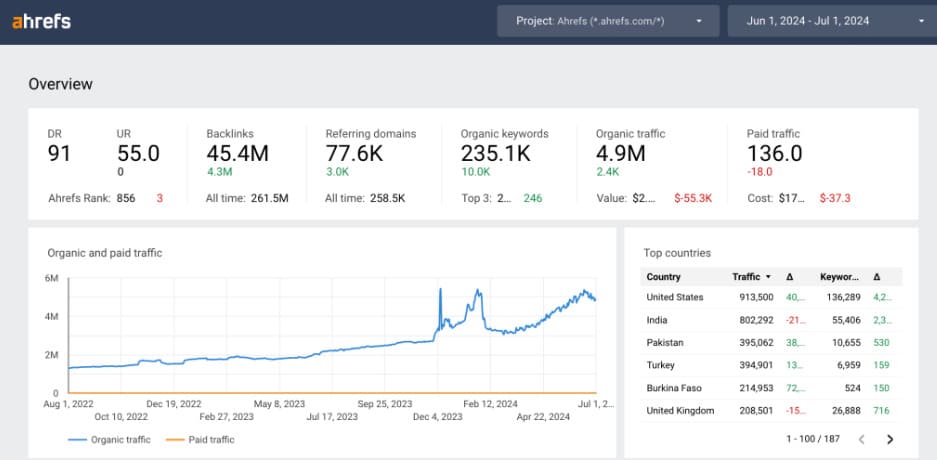
Ahrefs allows you to determine how costly and difficult a keyword could be.
Elit-Web: Enhancing Your PPC Strategies with Elit-Web
We’ve contributed to advertising multiple businesses in various verticals and locations. At Elit-Web, we prioritize our partners’ business goals, whether you’re a single start-up or a long-standing enterprise, and always rely on data.
The team of PPC experts we’ve gathered could turn your advertising journey into an effortless trip, developing an effective strategy focused on the relevant data. With our expertise, you can outsource ad campaign management to us and acquire a competitive edge through advanced targeting, appropriate software, and insights.
Comprehensive PPC Campaign Management
Elit-Web can provide the most relevant services to meet expectations and direct your business toward corporate objectives. We can assist you in effective PPC management and allocating the budget to achieve more returns. Your journey will start with a project overhaul, analysis, and planning of further steps to maximize the efficiency of target ad circulation and campaign maintenance.
Customized Analytics Solutions
Having our services behind your brand, you could access today’s analytical software that typically costs a lot of money. The PPC consultants will provide tailor-made assistance relying on the demands, target market data, and the goals you have already defined. To reach the audience and win the competitive game, you may require those who have experience to drive up results.
FAQ
Why is a competitor analysis for PPC important?
An assessment could highlight locations competitors may be overlooking. There are still some keywords to target or a population they have neglected. A competition analysis is vital since it’ll help you identify ways to improve a business strategy.
How to do a PPC competitive analysis?
Examine the keywords and ad writing employed in the market to determine the competition. Analyze relevant pages and their targeting options. Unleash software similar to SEMRush or SpyFu to gather analysis data on their campaign initiatives and monitor their performance over time.
How do you conduct a PPC audit?
It requires examining various indicators, including click-through rates (CTR), cost per click (CPC), conversion rates, and quality scores of advertising campaigns. A performance analysis consists of three primary phases: planning, audit fieldwork, and results outlining. There are some crucial steps and benchmarks within these periods.
How can I make my PPC more effective?
When you launched your first campaigns, you most likely had some keywords to target. You spend a particular amount each term, evaluate their performance, and delete any that must be done more effectively. You can redirect the budget for ineffective keywords to fresh phrases, or you may double it for your top performers.


